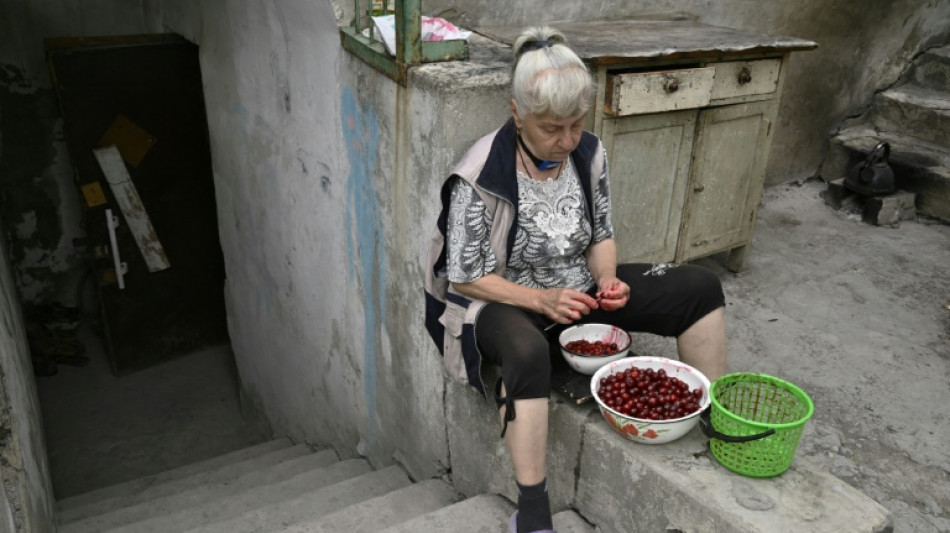

Living but only just as Lysychansk is bombed 'day and night'
Lyudmila says she can no longer stand living like this as she pits cherries outside the basement in eastern Ukraine which has been her home for the last three months.
Her small town of Siversk was badly shelled in March. Now it is in the firing line again as the Russians advance on Lysychansk, the last major city in the Lugansk region of the Donbas still in Ukrainian hands.
"Three months ago, they (the Russians) shelled here, now it's more towards there," said the 66-year-old between the thud of shells raining down on Lysychansk, with white smoke hanging over the city on the horizon.
"The bombing goes on day and night," said another woman dragging a cart to fetch water from a fountain.
"We haven't had electricity or gas for three months," said Lyudmila as a woman prepared potato pancakes over a fire in a corner of the cellar.
Pointing with a flashlight, the neighbours show AFP their "bedroom".
"Look, the mattresses are over there in the corner, and we spread them out here on the floor."
- 'Any toilet paper?' -
In the dark of the nextdoor basement, a 90-year-old woman leans on a walking frame. She needs medicine, but it's impossible to find any. The town's last pharmacy has shut and shops have been closed for weeks.
"Do you have any toilet paper?" a young man passing asked an AFP reporter.
"You have to go far to buy something, and nobody can take us."
Despite the danger, Vyacheslav Kompaniets, 61, continues to live in his apartment on the first floor of the five-storey building, even though all the windows were blown out by a rocket attack in March.
But he too ended up in the basement for a while after he suffered a stroke at the end of May.
"I was treated in the cellar" as Lysychansk, which is 20 kilometres away, began to come under incessant Russian shelling.
In March, when Russian forces were driven back from Siversk, a small fire station next to the apartment building was destroyed by a rocket, leaving a pile of debris that is still there.
While living with no windows may be possible in the summer, "we'll have to seal it all up" when autumn comes, Kompaniets said, not knowing how or with what he was going to do it.
The neighbours hope by then the war will be over. Until then they will live from day to day not knowing what the next will bring.
G.Aguado--ESF




